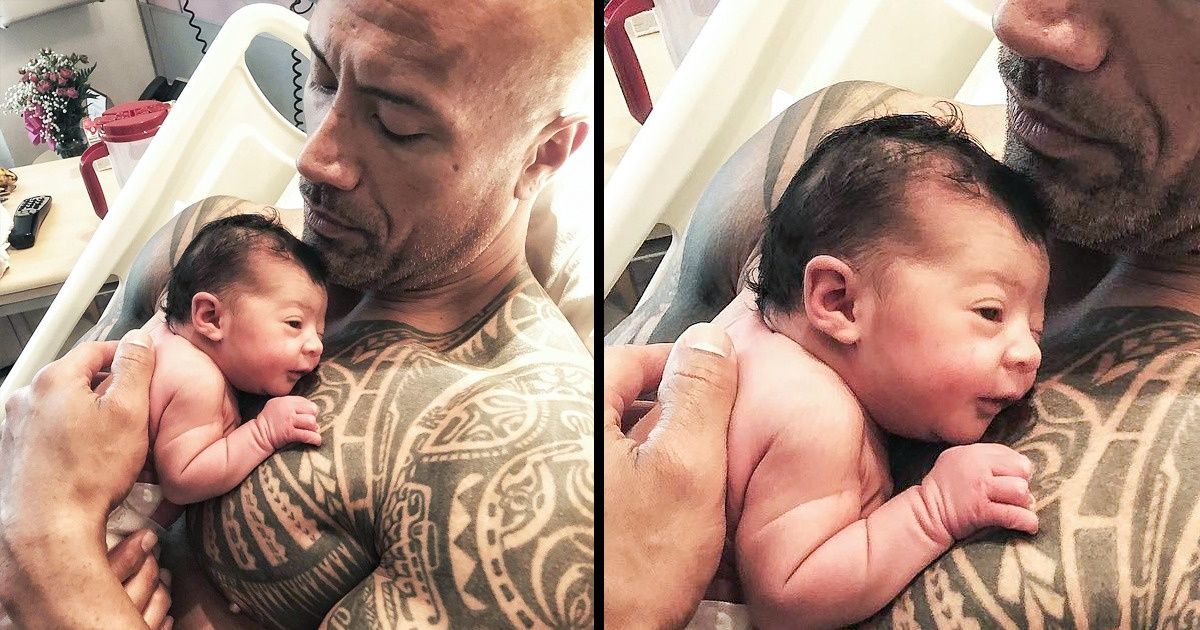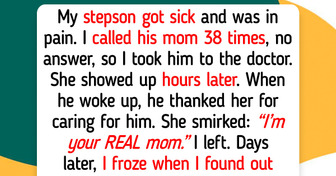So weird to see a man in a hospital bed with a baby in his hands.. maybe I don't go-to enough births to know what they look like ?
Science Says Childbirth Can Change a New Father’s Body and Brain

Mood and hormonal swings, stress, and dozens of unexpected body changes — this is what pregnancy and childbirth bring to a woman’s life. It is believed that fathers remain unaffected, because they don’t carry babies, and they don’t give birth. Recent studies showed, however, that men also experience hormonal, neurological, and behavioral changes when they welcome their newborn kids into their lives.
Here at Bright Side we got excited to learn about which changes male bodies and minds go through during their partner’s pregnancy and after childbirth, and here’s what science has to say.
Testosterone level seems to dip.
Testosterone is a “male” hormone that is responsible for developing male reproductive functions and motivating men to find partners. Studies have shown that men with higher levels of testosterone are likely to be more attractive to women. It seems, however, that testosterone levels in new dads can go down by up to 34%. Scientists believe that this can be explained by the fact that men who’ve just welcomed their children switch the focus of their attention inward toward their family and resist the desire to search for another partner. Additionally, the lower the level of testosterone in a new dad is, the more willingly he cares for a child and does baby-related household chores.
Oxytocin levels may rise.
Scientists studied the connection between a new father’s involvement in child-rearing activities with their hormone levels and came to an interesting conclusion. Those dads who actively played with their children had higher levels of oxytocin in their blood compared to those dads who were less involved. Oxytocin is a hormone that is responsible for relaxation, love, positive feelings, and the strong bond between people, and it naturally rises in new moms during and after childbirth.
Brains of new fathers are likely to change too.
The M.R.I. studies of 16 future dads showed quite an interesting thing: male brains demonstrated the same changes as those in new moms. Brain areas linked to attachment, empathy, and the ability to communicate with a child had more gray and white matter between 12 and 16 weeks of pregnancy than they did at the beginning. Scientists believe that these structural brain changes demonstrate the way fathers-to-be develop the necessary parenting skills over the course of their female partner’s pregnancy. Doctors are sure that in this way, dad’s brains try to ensure they can make a bond with their child even though they don’t carry babies and don’t give birth.
Men can even experience postpartum depression.
Postpartum depression is a mood disorder caused by pregnancy and childbirth, and it usually includes sadness, hopelessness, anxiety, and irritability. Researchers believe that postpartum depression is not just a female issue that affects new moms. Studies show that about 10% of men experience postpartum depression too. This may be caused by the lower level of testosterone in new fathers that we described above. “Low testosterone may contribute to the feelings of lethargy and disinterest in normally pleasurable activities that characterize depression,” writes Darby Saxbe, an Assistant Professor of Psychology from the University of Southern California.
It’s interesting that women whose partners have lower testosterone levels after childbirth have fewer symptoms of postpartum depression. Why could that be? It turns out that low-testosterone partners seem to be more involved in the relationship and they show more emotional support to their female partners, which in turn lowers their chances of depression.
Have you ever noticed changes in the mood and behavior of new fathers? If you’re a father yourself, could you tell us how childbirth has changed the way you feel and behave?
Comments
you don't need science, you can see everything with your eyes. Fathers change drastically after they see their newborn children. And this is so sweet ?
The rock's girl is such a cutie :3
Related Reads
I Cut Off My Parents After They Demanded My Inheritance—and I Don’t Regret It

11 People Who Chose Kindness Over Looking Away

My In-Laws Forced Me to Leave My Vacation Early—They Crossed Every Line

I’m Child-Free, So My Parents Chose My Adopted Brother to Inherit — I Didn’t Let That Slide

I Refuse to Earn Pennies While My Manager Cashes a Fortune

My Family Spent My College Fund on Christmas for Years—Now They Want My Help

12 Acts of Kindness That Quietly Turned Strangers Into Heroes

12 Moments That Show Romance Is Really About Small Acts of Kindness

15 Quiet Moments of Kindness That Made the Biggest Impact

12 Life Moments Where Quiet Kindness Played the Main Role

I Refuse to Drop College to Take Care of My Sick Sister, I Am Not Her Nurse

15+ Stories That Prove Some House Guests Are Impossible to Forget
